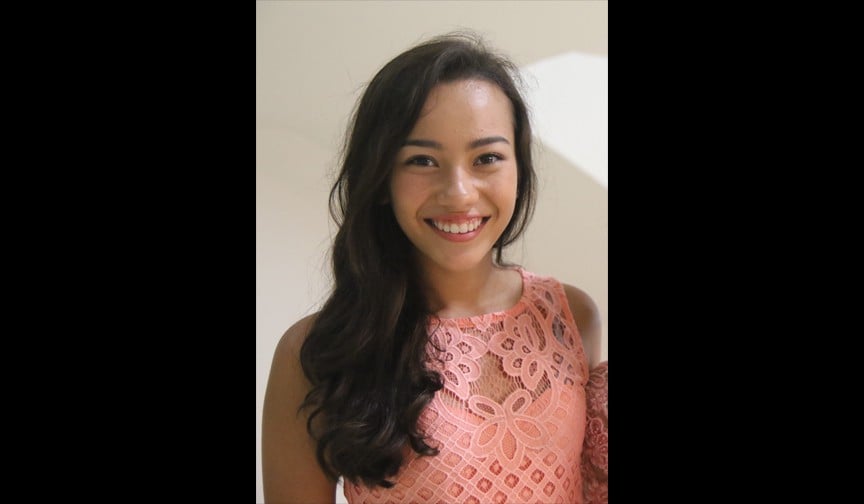
For self-deprecating MHS senior Sundari Parise, earning a perfect ACT score is a proud accomplishment, but she’s shied away from the praise it’s earned her.

In Moorestown High School senior Sundari Parise’s eyes, college applicants are too often viewed as a statistic. She said applicants are reduced to their community service hours, grade point average, class rank and standardized test scores.
“People are looking less at who you are as an actual person,” Parise said.
This fall, Parise earned a perfect ACT composite score of 36. According to a release from the Moorestown school district, on average, less than one-tenth of 1 percent of students who take the ACT earn a top score. For the self-deprecating Parise, earning a perfect score is a proud accomplishment, but she’s shied away from the praise it’s earned her.
“You’re more than just a number,” Parise said modestly.
Originally, taking the ACT wasn’t even part of Parise’s college application plan. Parise took the SAT in November 2016, and she said she had scored well enough that she didn’t plan on pursuing additional testing.
However, as she got more entrenched in the college application process, she realized she would either have to take additional SAT subject tests or the ACT to fulfill the science application required by some universities. She chose to sit for the ACT this September.
She said her preparation for the test wasn’t particularly extensive. Three days prior to the exam, she went to the library with a friend and went through an ACT review book together.
Mostly, she attributes the score to the time in the Moorestown school district. She said her 12 years of schooling have taught her how to be independent and study on her own, which she said is key to standardized testing.
Furthermore, she said her classes have also taught her valuable problem-solving skills and how to take knowledge and apply it.
“It ended up really helping because you don’t know material ahead of time,” Parise said. “You can prepare but there’s no possible way you can prepare for every single question.”
Parise said she’s unsure of how much an edge the score will give her as she applies to colleges.
Looking forward, Parise said she thinks she wants to major in biomedical engineering. Growing up, she said there was never one class where she shined more than the others. She said she did well in all of her courses, but she wasn’t particularly stronger in one course than another. For that reason, she was always unsure what she wanted to study moving forward.
The summer before her freshman year, Parise got some clarity. She attended a camp at Temple University exposing girls to engineering, and biomedical engineering grabbed her interest. When it came time to start visiting colleges, she recalled the earlier interest.
Following some introspection, Parise realized the choices she was making were leading her to the sciences. She said when she participated in debates through Model UN, she was picking topics related to health and the sciences, and the current events she chose to present in her English courses came from the science section of The New York Times.
“I kind of just realized the decisions I’d been making subconsciously,” Parise said. “These clearly are pointing in one direction.”
Parise said while she’s not quite sure where she’ll end up, she envisions herself in a lab conducting research.
Parise’s mother, Jori, is proud of her daughter for having earned the perfect score and wanting to pursue engineering. However, she said high achievement isn’t her top priority for her daughter — happiness is.
“I just want to make sure she’s happy,” Jori said, turning to give her daugher a warm smile.









